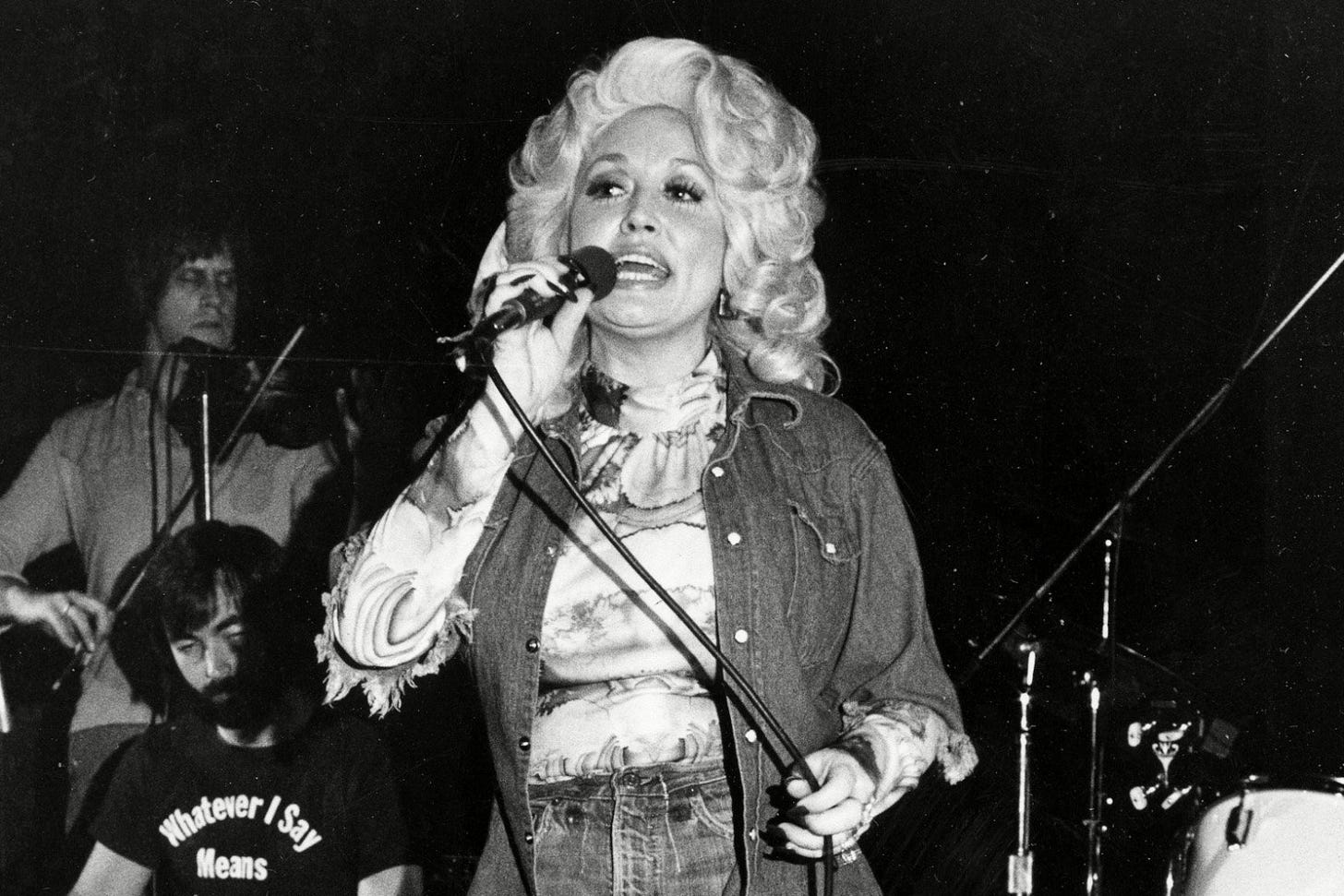I recall the release of Dolly Parton’s 1973 hit single “Jolene” as the moment when people who, unlike me, hadn’t been into Parton were into Parton all of a sudden, and my memory, it turns out, is correct. I just looked it up. “Jolene” was Parton’s first number-one country hit to cross over to pop.
It didn’t crack the pop top fifty. Still, “Jolene” clearly had a far bigger cultural impact, outside the normal country music fanbase, than than its pop-chart position would suggest.
I felt the impact. At eighteen, I wasn’t focused on chart positions; neither was anyone I knew. Yet by 1974, I was getting a strong impression that FM-band album-oriented-rock listeners and album buyers—the kind of listeners who took no interest in the 1972 middle-of-the-road number-one pop hit “Brandy,” say; and who had been deriding any glimpse they might have gotten of top-forty AM-band country & Western, Donna Fargo’s “The Happiest Girl in the Whole USA,” say, which crossed over in ‘72, as even tackier and more negligible than pop; the kind of listener who saw Parton herself, to the extent that they saw her at all, as a cartoonish exaggeration of everything supposedly cheeseball about the whole country genre—these people had suddenly decided that “Jolene” was cool and that they approved of Parton after all.
Hip acceptance only grew through the mid-and-early 1970’s. Parton's famous 1977 stand at the Bottom Line in New York picked up on the trend and solidified it, and while a growing interest in country among the supposedly informed and discerning might have seemed to validate, at last, my own eccentric listening tastes, I derided the new Parton fanbase in return for their earlier derision.
Hey, man. I’d been aware of Dolly and liked her work whole actual months—maybe even a whole year!—before “Jolene” even came out!
Johnny-come-latelies, I muttered. Or words to that effect.
Nowadays, with a somewhat fairer perspective, gained by looking back such a long way, I think “Jolene’s” appeal, well beyond the normal 1970’s audience for top-forty country, and more importantly, beyond the normal 1970s audience for top-forty pop—the single’s capturing, I mean, the admiring attention of the self-identified blues/rock/jazz aficionado ranging in age from about Parton’s to about ten years younger—generated an early stage of a new thing in music. It's now sometimes called Americana.



